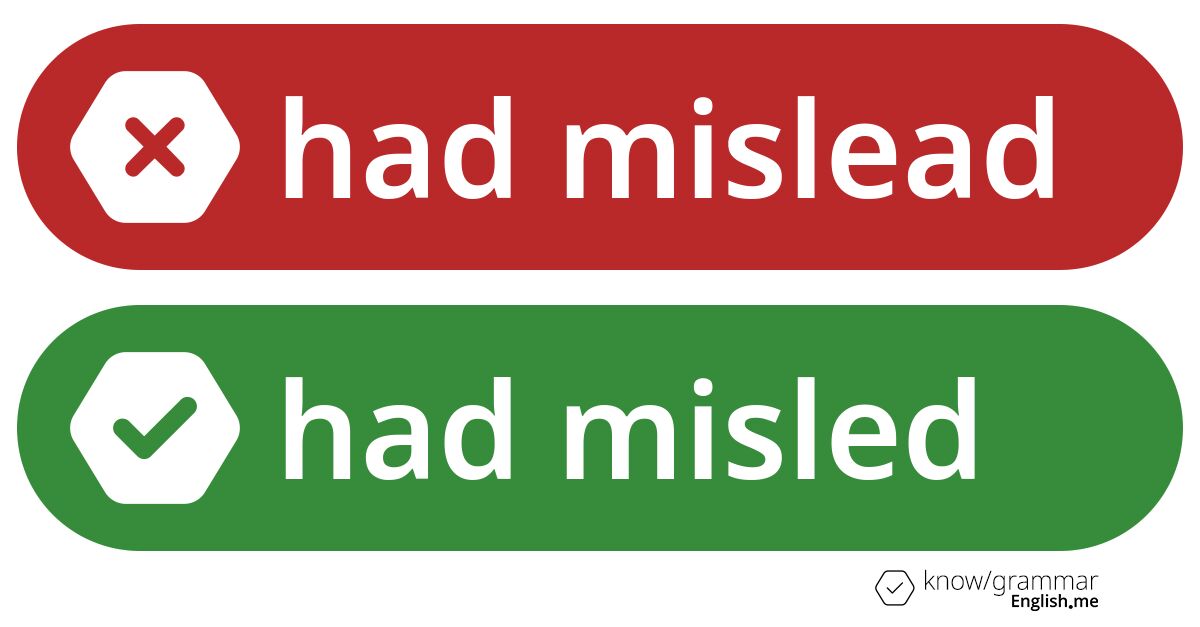The sneaky misstep: why "had mislead" leads us astray
Reviewed and edited by  Lloyd Cooper 02/10/2024, 19:45
Lloyd Cooper 02/10/2024, 19:45
English.me team member
 What kind of error is it?
What kind of error is it?

It's a verb tense error related to the misuse of the past participle form of the verb "mislead". The correct past participle is "misled", not "mislead".
 Why do people make this mistake?
Why do people make this mistake?
People might make this error because "lead" and "read" in their present tenses change to "led" and "read" for both their past and past participle forms, respectively, which can be confusing. The similarity in sound between "mislead" (pronounced "mis-leed") and "misled" (pronounced "miz-led") might also contribute to the mistake.
 What is correct?
What is correct?
The correct past participle form of "mislead" is "misled". Therefore, the correct phrase is "had misled".
 Examples of correct usage
Examples of correct usage
- She realized that the advertisement had misled her.
- He had misled the team with false information.
- They claimed the map had misled them during the hike.

 English
English español
español française
française italiano
italiano deutsche
deutsche 日本語
日本語 polski
polski česky
česky svenska
svenska Türkçe
Türkçe Nederlands
Nederlands